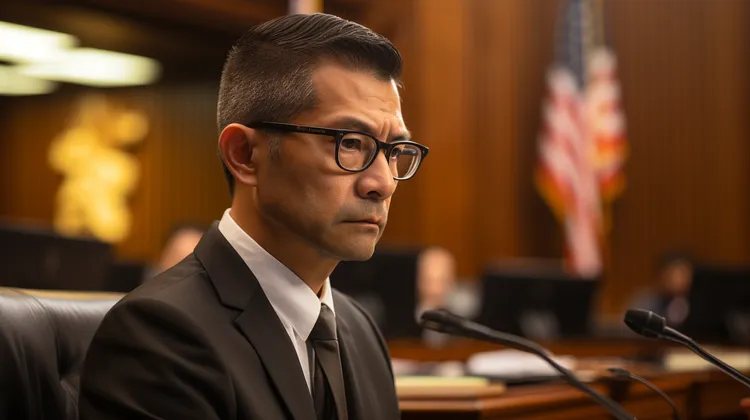Binance’s SEC Scrutiny: Regulatory Responsibility Lessons
Binance, one of the leading cryptocurrency exchanges, has recently been caught under the intense scrutiny of the U.S. Securities and Exchange Commission (SEC). This move by the regulatory body highlights the increasing concerns surrounding the lack of regulatory oversight in the cryptocurrency industry. As the world of digital currencies continues to evolve, it becomes crucial for companies like Binance to understand their regulatory responsibilities.
The SEC’s scrutiny of Binance stems from its suspicion that the exchange may have allowed U.S. investors to trade securities without complying with the relevant regulations. This move by the SEC reflects a growing concern among regulators about the potential risks associated with unregulated cryptocurrency exchanges. The SEC’s actions are a strong reminder to Binance and other crypto platforms that they need to operate within the boundaries of the law.
One of the key lessons to be learned from Binance’s SEC scrutiny is the importance of clear and transparent communication with regulators. The cryptocurrency industry often operates in a gray area of regulations, and companies must proactively seek regulatory guidance to avoid legal pitfalls. Binance should have engaged with the SEC beforehand to clarify any potential regulatory concerns and ensure compliance.
Another lesson to be learned is the significance of robust Know Your Customer (KYC) and Anti-Money Laundering (AML) procedures. Cryptocurrency exchanges must implement stringent customer verification measures to prevent fraudulent activities and ensure regulatory compliance. Binance must improve its KYC and AML processes to detect and deter any potential illicit activities on its platform.
Furthermore, Binance’s SEC scrutiny also highlights the need for greater transparency in the crypto industry. The lack of transparency has often been a primary concern for regulators. By providing comprehensive data and audit trails, cryptocurrency exchanges can build trust with regulators and minimize the risk of heavy-handed regulatory actions. Binance can take this opportunity to enhance transparency by sharing information regarding its compliance efforts and working closely with regulators.
Another regulatory responsibility lesson to be learned from Binance’s situation is the need to adapt to changing regulations. The regulatory landscape surrounding cryptocurrencies is evolving rapidly, and companies in this space must stay up to date with the latest regulations to avoid penalties or legal troubles. Binance should establish a dedicated regulatory compliance team to monitor the shifting regulatory environment and proactively modify its practices accordingly.
Furthermore, it is crucial for Binance and other cryptocurrency exchanges to establish strong internal controls and governance structures. Having clear policies, procedures, and compliance frameworks in place can help exchanges navigate the complex regulatory landscape. Binance should invest in building a strong internal compliance department to ensure that all operations are conducted in a legally compliant manner.
Moreover, collaborating with regulators and industry associations can also serve as a powerful tool for ensuring regulatory compliance and staying in the good books of regulatory bodies. By actively engaging with these entities, Binance can help shape regulations that are fair and conducive to the cryptocurrency industry’s growth.
Binance’s SEC scrutiny also highlights the importance of investor protection. Regulations are put in place to safeguard the interests of consumers and prevent fraudulent activities. By complying with these regulations, Binance can ensure that its users are protected from potential scams and financial losses. Investor protection should be a top priority for any cryptocurrency exchange.
Lastly, the Binance situation underscores the urgency for global regulatory coordination. The cryptocurrency industry operates on a global scale, and regulations vary across jurisdictions. To establish a fair and consistent regulatory framework, regulators worldwide must collaborate and share best practices. Binance can play a role in fostering this coordination by actively engaging with regulators from different countries and participating in international industry forums.
In conclusion, Binance’s SEC scrutiny serves as a wake-up call for the cryptocurrency industry. It underscores the importance of regulatory responsibility and compliance. By learning from this situation, companies like Binance can strengthen their internal controls, enhance transparency, work closely with regulators, and prioritize investor protection. The cryptocurrency industry has the potential to revolutionize finance, but it must also adhere to the rules and regulations that foster trust and stability in the financial ecosystem.




Strengthening internal compliance departments will ensure that cryptocurrency exchanges operate within the legal boundaries.
Let’s take this opportunity to foster trust, transparency, and stability in the financial ecosystem! 💼🌱
Binance’s lack of internal controls is a major red flag for potential investors 🚩